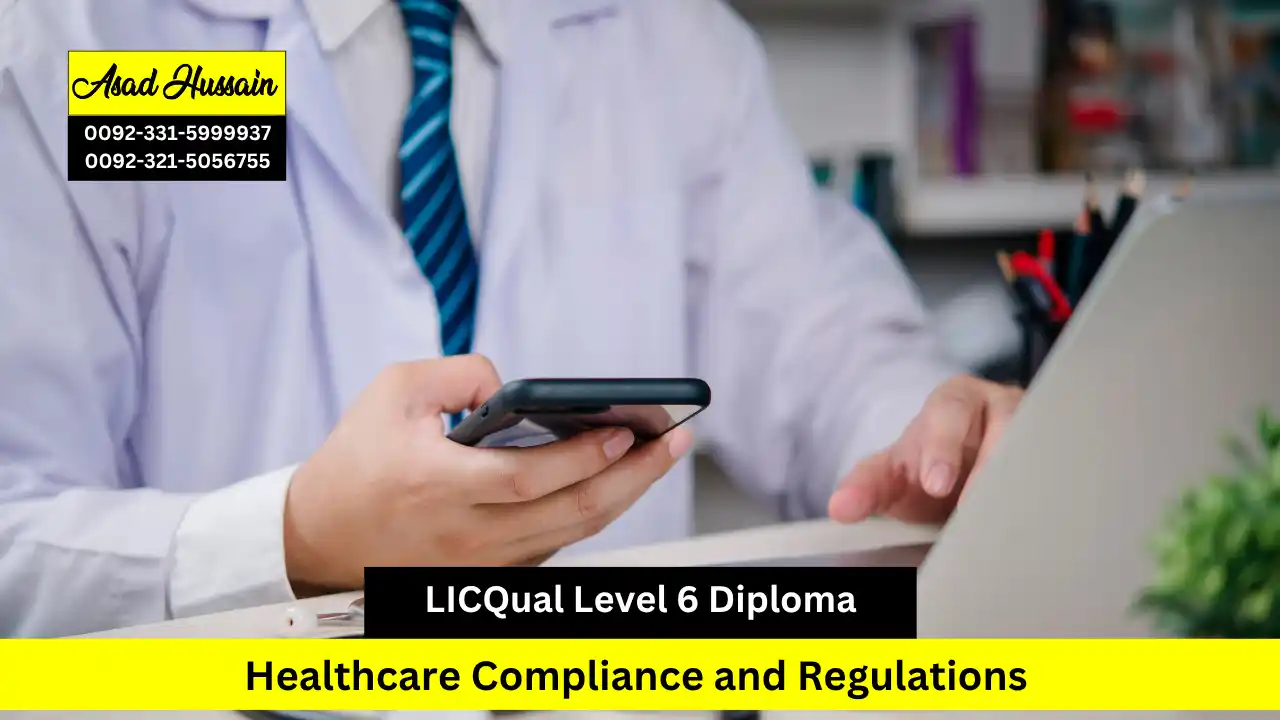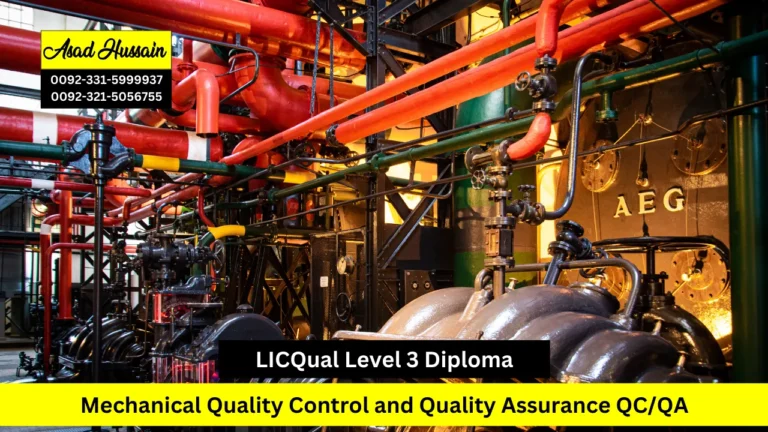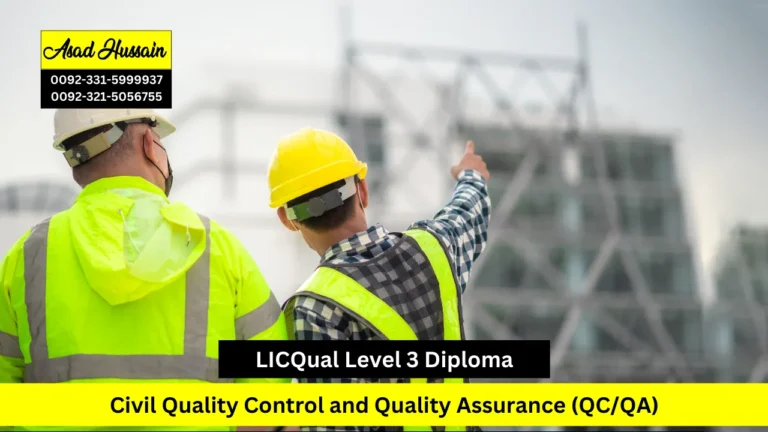The LICQual Level 6 Diploma in Healthcare Compliance and Regulations is a globally recognized qualification designed for professionals dedicated to upholding the highest standards of quality, safety, and ethical conduct in healthcare organizations. In today’s evolving healthcare environment, compliance and regulatory frameworks are essential to maintaining patient trust, organizational integrity, and legal accountability. This comprehensive program healthcare compliance equips learners with the knowledge and practical tools to interpret, implement, and monitor healthcare regulations effectively across diverse systems.
This diploma provides an in-depth understanding of healthcare compliance management, regulatory frameworks, and governance standards that influence modern healthcare institutions. Learners will gain expertise in healthcare legislation, ethical policy implementation, data protection, and accreditation processes that ensure compliance with both national and international standards. Through this qualification, professionals develop the ability to evaluate risk, enhance organizational transparency, and maintain operational excellence.
LICQual Level 6 Diploma in Healthcare Compliance and Regulations prepares learners to address real-world challenges in policy enforcement, audit management, and quality assurance. By integrating regulatory best practices with healthcare operations, learners will acquire the critical thinking and analytical skills needed to promote continuous improvement and patient safety. The course healthcare compliance also fosters strategic decision-making, enabling graduates to align compliance objectives with institutional goals.
Throughout the program, participants will explore topics such as clinical governance, ethical healthcare management, regulatory risk assessment, and quality control systems. Practical case studies and applied learning components ensure that learners can translate theory into actionable solutions within healthcare settings. This hands-on approach enhances their professional competence and ability to manage compliance initiatives effectively.
Designed for healthcare managers, compliance officers, auditors, and administrators, this diploma promotes leadership in ethical governance and regulatory oversight. Learners will become adept at managing compliance audits, conducting investigations, and ensuring that healthcare operations align with evolving legal and ethical standards.
The LICQual Level 6 Diploma in Healthcare Compliance and Regulations, graduates will possess the strategic, legal, and operational expertise to uphold compliance excellence within healthcare institutions. This qualification not only enhances career progression but also contributes to safer, more transparent, and accountable healthcare systems globally—making it an ideal choice for professionals committed to quality and governance in healthcare management.
Program Highlights
Mandatory Units
- Principles of Healthcare Compliance
- Healthcare Laws and Regulations
- Risk Management and Compliance Auditing
- Policy Development and Implementation
- Ethical Practice and Governance in Healthcare
- Strategic Compliance Leadership
The LICQual Level 6 Diploma in Healthcare Compliance and Regulations is designed for professionals who aim to advance their expertise in healthcare governance, quality assurance, and regulatory compliance. This qualification welcomes learners from diverse healthcare backgrounds who are eager to strengthen their understanding of compliance frameworks, ethical management, and organizational accountability. The entry requirements ensure that all learners possess the foundational knowledge and skills necessary to succeed in this advanced diploma program.
Age Requirements
• Learners must be at least 18 years of age or above at the time of enrollment.
• Applicants are expected to demonstrate maturity, responsibility, and a professional attitude toward healthcare management and compliance learning.
Educational Requirements
• A Level 5 qualification in healthcare, business administration, management, or a related discipline is preferred.
• Alternatively, candidates with equivalent academic qualifications or recognized professional certifications may also be accepted.
• Learners without formal qualifications but with substantial industry experience in healthcare or compliance may be considered on a case-by-case basis.
Professional Experience
• Ideally, learners should have at least two years of experience in healthcare management, compliance, auditing, or administrative roles.
• Individuals currently working in hospitals, clinics, public health institutions, or regulatory bodies are encouraged to apply.
• Experience in healthcare governance, risk management, or quality assurance will be an advantage for practical application of course concepts.
English Language Proficiency
• As the program is delivered in English, learners must demonstrate adequate proficiency in reading, writing, and communication.
• Non-native English speakers may be required to provide evidence of language competence through recognized tests such as IELTS or equivalent.
• Applicants who have previously studied or worked in an English-speaking environment may also meet this requirement.
Learners who do not fully meet the above criteria may still be considered based on their professional achievements and commitment to advancing in healthcare management. For those looking to build foundational knowledge before enrolling in this qualification, the LICQual Level 5 Diploma in Healthcare Management is a highly recommended related course that offers an excellent introduction to leadership and compliance principles.
The LICQual Level 6 Diploma in Healthcare Compliance and Regulations is designed to develop advanced expertise in regulatory frameworks, ethical governance, and risk management within healthcare systems. Learners will gain a comprehensive understanding of how to implement, monitor, and lead compliance initiatives that align with international healthcare standards. The following learning outcomes describe the knowledge, analytical abilities, and leadership competencies learners will acquire upon completion of each unit.
Principles of Healthcare Compliance
• Understand the fundamental principles and objectives of healthcare compliance and its role in maintaining patient safety and organizational integrity.
• Analyze the structure and importance of compliance management systems within healthcare settings.
• Apply key compliance methodologies to identify, monitor, and mitigate regulatory risks.
• Evaluate the effectiveness of internal control mechanisms in promoting transparency and accountability in healthcare operations.
• Develop a systematic approach to embedding compliance culture within healthcare organizations.
Healthcare Laws and Regulations
• Demonstrate knowledge of national and international healthcare laws, standards, and accreditation systems.
• Interpret and apply key legal frameworks governing patient rights, data protection, and healthcare quality assurance.
• Assess the implications of non-compliance with legal and regulatory obligations.
• Critically evaluate healthcare legislation to ensure operational alignment with ethical and professional standards.
• Apply legal knowledge to real-world healthcare management and compliance decision-making.
Risk Management and Compliance Auditing
• Identify potential risks within healthcare organizations and apply risk assessment tools to evaluate their impact.
• Develop and implement compliance auditing frameworks to ensure adherence to healthcare standards and regulations.
• Analyze audit findings to recommend corrective and preventive actions for continuous improvement.
• Enhance organizational resilience through proactive risk management and evidence-based compliance strategies.
• Use data-driven approaches to improve healthcare quality and patient safety through risk mitigation.
Policy Development and Implementation
• Design effective compliance policies and procedures aligned with healthcare governance frameworks.
• Translate complex regulatory requirements into actionable policies for operational teams.
• Evaluate the success and sustainability of implemented policies through continuous monitoring and review.
• Lead stakeholder engagement during policy development to ensure organizational buy-in and ethical adherence.
• Apply strategic planning and change management techniques to support successful policy rollout.
Ethical Practice and Governance in Healthcare
• Understand ethical principles that underpin healthcare governance, compliance, and leadership.
• Apply ethical frameworks to guide decision-making and maintain integrity in healthcare practices.
• Promote ethical accountability and professional conduct across all levels of the healthcare organization.
• Assess the relationship between ethics, governance, and healthcare compliance compliance in achieving healthcare excellence.
• Implement ethical leadership approaches to strengthen trust, fairness, and transparency in healthcare operations.
Strategic Compliance Leadership
• Demonstrate the ability to lead and manage compliance programs at a strategic level within healthcare organizations.
• Develop long-term compliance strategies that align with institutional goals and healthcare quality standards.
• Evaluate organizational performance through compliance metrics and key performance indicators (KPIs).
• Foster a culture of continuous improvement and regulatory excellence across departments.
• Apply advanced leadership and communication skills to influence ethical and compliant organizational behavior.
Upon completing the LICQual Level 6 Diploma in Healthcare Compliance and Regulations, learners will possess the strategic insight and practical expertise required to ensure healthcare organizations meet legal, ethical, and regulatory obligations. Graduates will be able to design, implement, and oversee compliance systems that promote patient safety, operational integrity, and sustainable healthcare governance. This qualification healthcare compliance empowers professionals to take on leadership roles in healthcare compliance, auditing, governance, and quality assurance at both national and international levels.ems worldwide.
The LICQual Level 6 Diploma in Healthcare Compliance and Regulations is a globally recognized qualification designed for healthcare professionals aiming to master the principles of regulatory compliance, ethical governance, and quality assurance within healthcare systems. As global healthcare environments become increasingly regulated, compliance management plays a vital role in ensuring patient safety, legal integrity, and organizational excellence. This program equips learners with the advanced knowledge, analytical capabilities, and leadership skills necessary to implement, monitor, and sustain compliance frameworks in healthcare settings, fostering a culture of transparency and accountability.
Healthcare Leaders and Managers
• Professionals currently in or aspiring to leadership roles within hospitals, clinics, and healthcare organizations.
• Managers responsible for ensuring organizational compliance with healthcare laws, standards, and ethical frameworks.
• Individuals seeking to strengthen their ability to interpret and apply complex healthcare regulations in daily operations.
• Leaders focused on improving healthcare delivery through effective policy implementation and regulatory adherence.
• Administrators aiming to build sustainable compliance cultures that promote patient safety and operational integrity.
Healthcare Professionals and Practitioners
• Doctors, nurses, and allied health professionals involved in managing healthcare compliance and quality assurance.
• Practitioners seeking to expand their understanding of healthcare legislation, data protection, and ethical practice.
• Professionals dedicated to ensuring adherence to patient safety, confidentiality, and professional accountability standards.
• Clinicians aiming to integrate compliance-driven practices into clinical governance and operational processes.
• Learners striving to enhance their professional competence in regulatory compliance, audits, and ethical conduct.
Risk and Compliance Officers
• Professionals responsible for designing, implementing, and monitoring healthcare compliance programs.
• Individuals ensuring organizations meet national and international healthcare laws, guidelines, and accreditation standards.
• Managers tasked with conducting audits, mitigating compliance risks, and promoting transparency in healthcare operations.
• Learners specializing in healthcare governance, risk management, and ethical policy enforcement.
• Leaders committed to upholding integrity and trust through effective regulatory oversight and internal control mechanisms.
Policy Makers and Healthcare Administrators
• Policy makers and administrators engaged in developing and enforcing healthcare regulations and compliance policies.
• Professionals integrating ethical and legal frameworks into healthcare governance and organizational strategy.
• Individuals responsible for ensuring healthcare systems align with global quality and safety standards.
• Administrators managing compliance departments or overseeing quality assurance initiatives in healthcare organizations.
• Leaders dedicated to establishing robust compliance infrastructures that strengthen healthcare governance systems.
Supervisors and Departmental Heads
• Supervisors overseeing departmental operations and ensuring adherence to compliance procedures and standards.
• Departmental heads responsible for implementing healthcare policies, risk assessments, and ethical frameworks.
• Professionals developing internal monitoring systems to ensure compliance with operational and regulatory requirements.
• Managers conducting internal audits and reviews to promote accountability and prevent compliance breaches.
• Leaders fostering a collaborative compliance culture to enhance departmental efficiency and service quality.
Career-Focused Learners and Future Healthcare Compliance Managers
• Individuals aspiring to build careers in healthcare governance, risk management, and regulatory affairs.
• Learners preparing for leadership positions in healthcare compliance, auditing, and policy development roles.
• Professionals seeking to advance in healthcare quality management, legal compliance, or accreditation consultancy.
• Career-driven individuals motivated to implement global best practices in healthcare ethics and regulation.
• Learners aiming to become influential leaders capable of driving compliance excellence in healthcare institutions worldwide.
The LICQual Level 6 Diploma in Healthcare Compliance and Regulations is ideal for professionals dedicated to maintaining the highest standards of healthcare governance, ethics, and compliance. Graduates will acquire the expertise to develop, implement, and lead compliance programs that align with global healthcare regulations and quality benchmarks. This qualification opens pathways to senior roles in healthcare management, policy development, and regulatory oversight — empowering professionals to strengthen ethical practices, ensure patient safety, and uphold the integrity of healthcare systems across the world.







